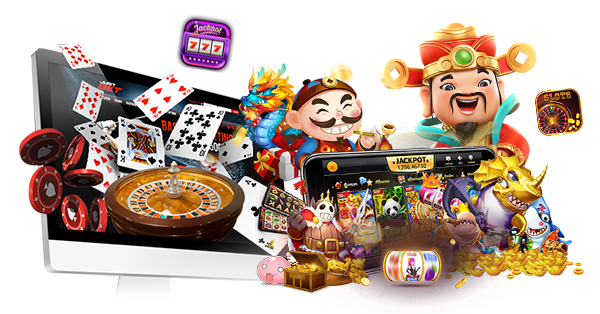หวานเจี๊ยบ 777 คุณอาจสงสัยว่า: เว็บไซต์ฝากและถอนเงินโดยตรงคืออะไร? ต้องถอนออกอย่างน้อย 1 บาท นั่นคืออะไร? เนื่องจากเป็นเว็บไซต์โดยตรง คุณสามารถฝากเงินเข้าบัญชีสล็อตของคุณได้โดยไม่ต้องใช้ตัวแทน ทำให้เป็นระบบที่ปลอดภัยและมีความเสี่ยงสูง การฝาก/ถอนขั้นต่ำเริ่มต้นเพียง 1 บาท คุณจึงไม่ต้องล้างกระเป๋าเงินมากเกินไป หากคุณต้องการเสี่ยงโชคในการเล่นการพนันหรือสนุกกับสล็อตแมชชีน ถือเป็นข้อได้เปรียบสำหรับมือใหม่ที่ไม่ต้องการลงทุนเยอะ แต่ฉันอยากจะลองเสี่ยงโชคดู ข้อได้เปรียบที่สำคัญของเว็บไซต์ฝากและถอนเงิน
Direct Slots ซึ่งไม่มีการถอนขั้นต่ำ 1 บาท คือคุณไม่จำเป็นต้องมีตัวแทนสำหรับขั้นตอนการเดิมพันของคุณ เมื่อคุณเล่นสล็อตออนไลน์คุณสามารถวางเดิมพันผ่านเว็บไซต์ได้โดยตรงแทนที่จะต้องใช้บริการของตัวแทนซึ่งอาจมีราคาแพงกว่า slot thailand 777 login PG Direct Slots เป็นหนึ่งในเว็บไซต์ที่คุณสามารถเล่นสล็อตได้โดยไม่ต้องใช้ตัวแทน การเพิ่มตัวแทนทำให้คุณสามารถวางเดิมพันที่มีให้บริการโดยตรงและไม่มีค่าใช้จ่ายเพิ่มเติม สำหรับผู้ที่มองหาความสะดวกและรวดเร็วในการเล่น สล็อต PG โดยตรงคือตัวเลือกที่เหมาะสมที่สุด ไม่มีการฝากหรือถอนขั้นต่ำบนเว็บไซต์นี้
หวานเจี๊ยบ 777 หลายคนอาจจะสงสัยว่าเว็บสล็อตโดยตรงหมายถึงอะไร และเหตุใดจึงเป็นที่นิยม? สล็อตเว็บไซต์โดยตรงหมายความว่าการเล่นสล็อตออนไลน์ทำได้ผ่านเว็บไซต์คาสิโนเว็บไซต์โดยตรงโดยไม่จำเป็นต้องเกี่ยวข้องกับตัวแทนหรือคนกลาง หมายความว่าผู้เล่นสามารถทำธุรกรรมใด ๆ ไม่ว่าจะเป็นการฝากและถอนเงิน True Wallet สามารถทำได้โดยตรงบนเว็บไซต์คาสิโน เว็บสล็อตโดยตรง การฝากและถอนเงิน True Wallet ไม่มีจำนวนเงินขั้นต่ำ อะไรทำให้สะดวกยิ่งขึ้น และสะดวกยิ่งขึ้นอย่างแน่นอน
นี่คือเหตุผลว่าทำไมเว็บสล็อตโดยตรง การฝากและถอนเงิน กระเป๋าเงินจริง ไม่มีธนาคาร ไม่มีจำนวนเงินขั้นต่ำจึงได้รับความนิยมเพิ่มมากขึ้น เนื่องจากมีฟีเจอร์ที่น่าสนใจสำหรับผู้เล่น ทำให้ได้รับความนิยมในหมู่ผู้เล่นมากขึ้นในการเล่นสล็อตเว็บในรูปแบบนี้ นอกจากนี้ความพร้อมในการเข้าถึงและการทำธุรกรรมที่รวดเร็วทำให้เว็บสล็อตโดยตรงพร้อมเดิมพันขั้นต่ำ 1 บาท สล็อต 777 เว็บตรง วอเลท เป็นที่นิยมในหมู่ผู้เล่นที่ต้องการประสบการณ์ที่สมบูรณ์แบบในการเล่นสล็อต PG ของแท้
คุณอาจสงสัยว่า: เว็บไซต์ฝากและถอนเงินโดยตรงคืออะไร สล็อต 777 เว็บตรงไม่ผ่านเอเย่นต์ ต้องถอนออกอย่างน้อย 1 บาท นั่นคืออะไร? เนื่องจากเป็นเว็บไซต์โดยตรง คุณสามารถฝากเงินเข้าบัญชีสล็อตของคุณได้โดยไม่ต้องใช้ตัวแทน ทำให้เป็นระบบที่ปลอดภัยและมีความเสี่ยงสูง การฝาก/ถอนขั้นต่ำเริ่มต้นเพียง 1 บาท คุณจึงไม่ต้องล้างกระเป๋าเงินมากเกินไป หากคุณต้องการเสี่ยงโชคในการเล่นการพนันหรือสนุกกับสล็อตแมชชีน ถือเป็นข้อได้เปรียบสำหรับมือใหม่ที่ไม่ต้องการลงทุนเยอะ แต่ฉันอยากจะลองเสี่ยงโชคดู ข้อได้เปรียบที่สำคัญของเว็บไซต์ฝากและถอนเงิน Direct Slots ซึ่งไม่มีการถอนขั้นต่ำ 1 บาท คือคุณไม่จำเป็นต้องมีตัวแทนสำหรับขั้นตอนการเดิมพันของคุณ
เมื่อคุณเล่นสล็อตออนไลน์คุณสามารถวางเดิมพันผ่านเว็บไซต์ได้โดยตรงแทนที่จะต้องใช้บริการของตัวแทนซึ่งอาจมีราคาแพงกว่า PG Direct Slots slot 777 online เป็นหนึ่งในเว็บไซต์ที่คุณสามารถเล่นสล็อตได้โดยไม่ต้องใช้ตัวแทน การเพิ่มตัวแทนทำให้คุณสามารถวางเดิมพันที่มีให้บริการโดยตรงและไม่มีค่าใช้จ่ายเพิ่มเติม สำหรับผู้ที่มองหาความสะดวกและรวดเร็วในการเล่น สล็อต PG โดยตรงคือตัวเลือกที่เหมาะสมที่สุด ไม่มีการฝากหรือถอนขั้นต่ำบนเว็บไซต์นี้ คุณสามารถเริ่มเล่นสล็อตได้ด้วยเงินเพียง 1 บาท และหากคุณโชคดีก็สามารถถอนเงินรางวัลของคุณได้ทันทีและไม่มีจำนวนเงินขั้นต่ำ นี่เป็นมูลค่าเพิ่มที่แท้จริงสำหรับผู้เล่นที่ต้องการรับรางวัลอย่างรวดเร็ว
เมื่อผู้เล่นใหม่ทุกคนสงสัยว่าเว็บไซต์สล็อตโดยตรงคืออะไร และคุณจะสามารถที่จะได้รับเงินคืนหรือไม่? เราพร้อมรับประกันสิ่งนี้หากใครก็ตามใช้บริการของเว็บไซต์ของเรา เราจะสามารถทำกำไรได้จริงเพราะเรากลายเป็นเว็บไซต์โดยตรง slot thailand 777 ไม่ผ่านตัวแทน ทุกคนสามารถใช้บริการได้ไม่จำกัดทุกวัน ผู้เล่นทุกคนสามารถใช้บริการของเราได้อย่างปลอดภัย เพราะบนเว็บไซต์ของเรา ช่องทางเว็บไซต์ PG โดยตรงไม่ผ่านตัวแทน มีระบบรักษาความปลอดภัยชั้นยอดและอัพเดทระบบรักษาความปลอดภัยทุกเดือน

“สล็อต PG เว็บไซต์ตรง ไม่มีตัวแทน ฝากและถอนไม่มีขั้นต่ำ” คุณจะพบความสะดวกสบายและความคุ้มค่าในการเล่นสล็อตออนไลน์โดยไม่ต้องใช้ตัวแทน สล็อต 777 เว็บตรงไม่ผ่านเอเย่นต์ และมีการฝากและถอนเงินน้อยที่สุด คุณจึงสามารถเพลิดเพลินไปกับประสบการณ์การเดิมพันที่ดีโดยไม่ต้องกังวลใดๆสล็อต PG ดำเนินการโดยตรงผ่านเว็บไซต์โดยไม่ต้องใช้ตัวแทนหรือคนกลาง นี่คือข้อได้เปรียบหลักที่คุณสามารถหาได้โดยตรงจากเว็บไซต์ เนื่องจากคุณไม่จำเป็นต้องเปิดเผยข้อมูลส่วนบุคคลหรือเงินใดๆ กับนายหน้าที่อาจต้องเสียค่าธรรมเนียม มากกว่า.
เมื่อเล่นออนไลน์ให้แน่ใจว่าคุณเดิมพันในระบบกฎหมาย และไม่มีข้อกังวลเรื่องความโปร่งใสหรือความปลอดภัย นี่คือหนึ่งในเหตุผลว่าทำไมสล็อต PG บนเว็บโดยตรงจึงเป็นตัวเลือกที่ยอดเยี่ยมสำหรับผู้เล่นที่ให้ความสำคัญกับความคุ้มค่าและความสะดวกสบายข้อได้เปรียบหลักของเว็บไซต์ PG Slots Direct: ไม่มีตัวแทน การฝากและถอนเงิน ไม่มีจำนวนเงินขั้นต่ำ คุณไม่จำเป็นต้องมีเงินในกระเป๋ามากมายหากต้องการเล่นสล็อต ฝากเงินเริ่มต้นเพียงบาทเดียว ให้คุณลองเล่นเกมได้โดยไม่ต้องใช้เงินส่วนใหญ่ สล็อต 777 เว็บตรง วอเลท
หวานเจี๊ยบ 777 เว็บไซต์ตรง 100% ที่ไม่มีตัวแทน สล็อตออนไลน์ ปัจจุบันเป็นเว็บไซต์การพนันออนไลน์ที่ร้อนแรงที่สุด เพราะเราไม่เคยหยุดพัฒนา ดังนั้นเราจึงอัปเดตเกมการพนันใหม่ ๆ อย่างต่อเนื่องเพื่อให้ผู้เล่นมีโอกาสเล่นทั้งเกมคาสิโนออนไลน์ ชนะเงินและไม่มีเงินฝากขั้นต่ำ เว็บไซต์สล็อตโดยตรงหลายแห่งไม่ผ่านตัวแทน เช่น บาคาร่าออนไลน์ เกมยิงปลาออนไลน์ เกมสล็อตออนไลน์ ในปี 2021 ถอดรหัสง่ายไม่ผ่านเอเย่นต์ กระแสนิยมมากในสมัยนี้ เงินจริงถือเป็นเกมที่มีอัตราการจ่ายเงินสูง ทำเงินได้ง่ายๆ มีเกมให้เลือกมากกว่า 1,000 เกม นับเป็นเกมเดียว ด้วยธีมที่แตกต่างกัน แต่สิ่งที่ธรรมดาและน่าดึงดูดที่สุดคือมันมีกราฟิคที่สวยงาม ผลกระทบของไซต์สล็อตไม่ได้เกิดขึ้นผ่านตัวแทน โดยการรวบรวมสัญลักษณ์ต่าง ๆ slot thailand 777 เพื่อมอบรางวัลและยังออกแจ็คพอตที่สามารถชนะได้อย่างง่ายดายบนเครื่องสล็อตออนไลน์โดยไม่ต้องผ่านตัวกลางขั้นสุดท้าย ยังเหมาะสำหรับผู้เล่นใหม่ที่มีเงินทุนน้อยอีกด้วย สล็อตยังสามารถหมุนได้

ระบบฝากและถอนเงินที่รวดเร็ว ระบบโอนเร็วในเวลาเพียงไม่กี่วินาทีและยังถือเป็นเว็บไซต์สล็อตโดยตรงแบบไม่มีตัวแทนในปี 2021 สล็อต 777 เว็บตรงไม่ผ่านเอเย่นต์ และยังมีเกมสล็อตยอดนิยมที่คุณสามารถเพลิดเพลินได้อย่างเต็มที่พร้อมกับเว็บไซต์ที่ไม่มีตัวแทนโดยตรง กำหนดเป้าหมายตัวแทนที่แตกหักง่าย ที่ตั้งทางตรงที่ใหญ่ที่สุดในโลกคือหนึ่งในสถานที่ที่ดีที่สุดในโลก ใช้งานง่ายในเวลาไม่ถึงนาที คุณสามารถฝังสล็อตและแคมป์แสนสนุกได้โดยตรงบนเว็บไซต์ No Agent 2021 คัดสรรเกมสล็อตยอดนิยมสำหรับคุณ เข้าร่วมกับเราและสร้างรายได้อย่างบ้าคลั่ง อยู่ที่ไหนก็สนุกด้วยกันได้ รวมถึงเว็บไซต์สล็อตโดยตรง พร้อมค่ายสล็อตชั้นนำทั้งหมดเพื่อให้ทุกคนสามารถร่วมสนุกได้ด้วยกัน เว็บไซต์ตรง ตัวแทนไม่เกิน 100 ราย
คุณสามารถติดต่อกับเว็บไซต์ได้โดยตรงโดยไม่ต้องติดต่อตัวแทนก่อนแล้วมาเล่นกันได้เลย เว็บไซต์สล็อตดีๆ แบบนี้กำลังรอให้คุณมาสัมผัสอยู่ ช่องทางเว็บโดยตรงไม่ได้ทำงานผ่านตัวแทนและคลังสินค้าทั้งหมด คุณจะไม่ผิดหวังแน่นอน การันตีจากผู้เล่นทั่วโลกที่ยอมรับว่าเป็นเว็บไซต์ที่ดีที่สุด เว็บสล็อตไม่มีเอเย่นต์ 2021 slot 777 online บริการตลอด 24 ชม. เดิมพันเร็ว ไม่ต้องรอนาน เว็บตรง สอบถามฟรี เว็บตรง 100% เดิมพันได้ทุกเกมทันที สมาชิกวางเดิมพันมากกว่า 30,000 ครั้งต่อวัน
หวานเจี๊ยบ 777 เราคัดสรรเกมคุณภาพสูงที่ได้มาตรฐาน เราคือเครื่องสล็อตออนไลน์ที่ดีที่สุดสำหรับมือถือ พัฒนาเกมด้วยรูปแบบการเล่นที่น่าสนใจที่สุด เกมที่จ่ายสูง สมัครสมาชิกตอนนี้และรับโบนัสฟรี 100% ทันที สมัครฟรี. ไม่มีค่าใช้จ่าย
